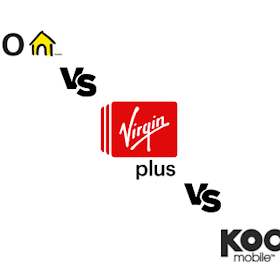 The latest Nexus device, future flagship of the Android operating system, was announced a few weeks ago and it’s probably about time we wrote a little something about it. Interestingly enough, the Nexus 4 is not a Samsung, HTC or even, as some speculated, a Motorola-manufactured device. Instead, the Nexus 4 will be coming to consumers courtesy of LG.
The latest Nexus device, future flagship of the Android operating system, was announced a few weeks ago and it’s probably about time we wrote a little something about it. Interestingly enough, the Nexus 4 is not a Samsung, HTC or even, as some speculated, a Motorola-manufactured device. Instead, the Nexus 4 will be coming to consumers courtesy of LG.
While we understand completely why LG would want the publicity of getting one of its devices in to eager Android-enthusiasts’ hands, it’s still interesting that Google opted to go with this partnership. LG hasn’t been doing particularly well of late, despite still churning out solid devices. Then again, LG’s ability to produce quality products coupled with its lack of market share may very well have been the perfect storm of reliability and price for Google and hence a new Nexus was born.
One thing we weren’t completely expecting is that the Nexus 4 will be shipping with the next Android OS: Android 4.2. The new OS brings a bunch of new features, including a new customization centre that we’re very keen to try out. If you’d like to know more, you can check out our Android 4.2 and better customization post from a while back. If you’re after a summary, what the new feature basically allows is a dual-boot system.
This means that users can either boot in stock-standard Android mode, or boot in their manufacturer’s UI (such as HTC’s Sense or Samsung’s TouchWiz). The ability to boot in the vanilla Google configuration means that future users shouldn’t have to wait so long for an Android update, as while manufacturers spend time making it work with their UI users can simply switch their phone over to Google’s layout and upgrade away.
However, this is hardly a bonus for the Nexus 4, as it’s a Google device at heart anyway. Nexus devices have always enjoyed more timely updates than their 3rd party competitors; a perk that may very well disappear once 4.2 hits the air.
So, with this in mind what does the Nexus 4 offer to bring in the crowds?
Well, from what we’ve heard the 4.7 inch HD screen is great, quad-core CPU is powerful and 2GB of RAM is definitely a plus. There’s also an 8MP camera with 1080p video recording and… yep, this is a pretty familiar specs list. The Nexus 4, on paper and as far as hardware goes, doesn’t really seem to have that much to justify purchasing it over the competition other than the fact that it ships with Android 4.2. While that’s certainly a good enough reason for many, it’s only going to be a few months before more viable options start appearing.
This time around, Android users are going to have to look somewhere other than a specs sheet to find out why the Nexus 4 is a good buy. It’s a strange concept, we know, but the Nexus 4 seems to be all about the price tag.
Google is apparently going to be subsidizing the Nexus 4’s price heavily. From what we’ve heard customers can expect a price tag of US$299 in the USA (probably a bit more elsewhere), with Google taking around a $350 hit per device. A high-end phone with the latest and greatest version of Android for just $299 outright with no contract.
We can definitely see the appeal, even if that price-point is for the $8GB model and, unfortunately, there’s no MicroSD slot for memory expansion.
So there you have it: the two biggest reasons we can see users going after the Nexus 4. Granted, price and the newest Android OS are two pretty big selling points, but we’re not sure how well a smartphone with only 8GB and 16GB models with no option to expand is going to go.
Still, it’s a Nexus device so our bets are it’ll definitely get by.
One major flaw we haven't yet mentioned is that the Nexus 4 does not have 4G LTE support. In this day and age this would be inexcusable, if not for the reported price. However, we still think that if anything has the potential to break global sales for the Nexus 4 then this is it. While it's true that many countries still do not have 4G, or have limited 4G, it's still an important factor for a lot of consumers. It'll be interesting to see how it plays out.
Let’s hope that LG has done a good job with this one. If so, it could go a far way towards putting LG back in to Android shoppers’ minds when next they’re in the market to compare.
Related Articles
Find Better Phones and Plans
Hundreds of cell phone plans unpacked. All the facts. No surprises.

































